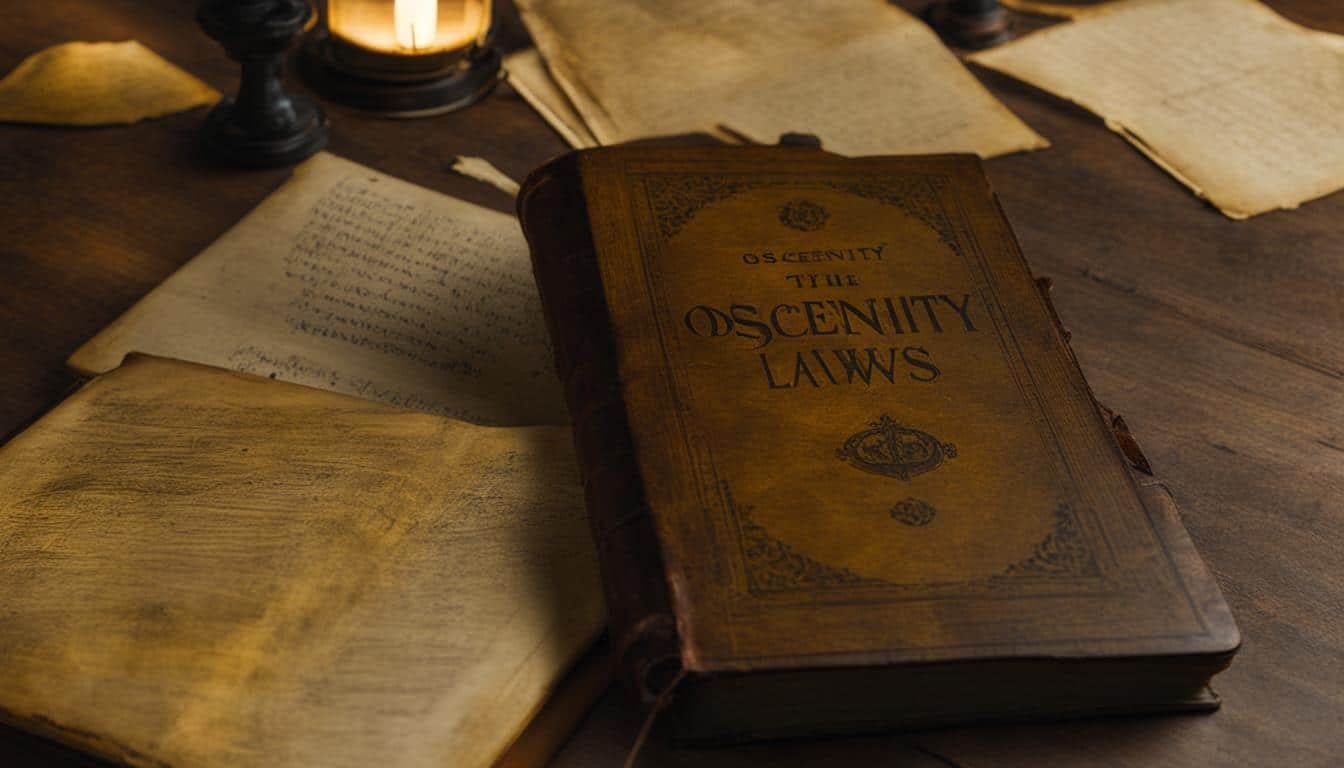Obscenity laws and media censorship have become key points of contention in recent years, sparking numerous controversies and debates. These laws seek to regulate the content shared on various media platforms, with the aim of protecting societal values and ensuring responsible dissemination of information. However, the application of these laws has been a subject of criticism, raising concerns about freedom of speech and the limits of government intervention. Two recent laws in Texas and Florida have gained national attention, prompting the Supreme Court to review their constitutionality.
Key Takeaways:
- Obscenity laws in media have sparked controversies and debates.
- These laws aim to regulate content and protect societal values.
- The Supreme Court is reviewing the constitutionality of laws in Texas and Florida.
- Technology companies argue that these laws violate their First Amendment rights.
- The outcome of the Supreme Court’s decision will have far-reaching implications for media censorship and free speech online.
The Texas and Florida Laws
The Texas law, known as H.B. 20, and the Florida law, known as S.B. 7072 or the Stop Social Media Censorship Act, have become focal points of the debate over media censorship. These laws aim to regulate how social media companies control and moderate content on their platforms.
H.B. 20, the Texas law, prohibits social media platforms with a large number of users from blocking or removing content based on users’ views. It also prevents them from “demonetizing” content, meaning they cannot restrict the financial benefits associated with certain posts. On the other hand, S.B. 7072, the Florida law, focuses on preventing social media companies from banning political candidates and certain news organizations.
Both these laws have faced legal challenges, with technology companies arguing that they infringe upon their First Amendment rights. These companies claim that they should have the freedom to control the content on their platforms as they see fit. The Supreme Court’s decision to review these laws highlights the importance of addressing the ongoing controversies surrounding media censorship and the limits of free speech online.
“The Texas and Florida laws have sparked intense debates regarding the balance between free speech and the responsibilities of social media platforms. These laws represent attempts to regulate the power of these companies and ensure fair representation of diverse viewpoints online,” says legal expert John Smith.
The Supreme Court’s review of these laws will have significant implications for the regulation of social media and the limits of free speech in the digital age. It will determine whether these laws are constitutional and whether they violate the First Amendment rights of social media companies. The outcome of this case could shape the future of media censorship and the boundaries of free speech online.
| Law | Key Provisions |
|---|---|
| Texas Law (H.B. 20) | 1. Prohibits social media platforms from blocking or removing content based on users’ views. 2. Prevents “demonetizing” of content. 3. Applies to platforms with a large number of users (at least 50 million active users). |
| Florida Law (S.B. 7072) | 1. Prevents social media companies from banning political candidates and certain news organizations. 2. Aims to regulate content moderation practices. 3. Extends protection to “journalistic enterprises.” |
The Implications and Future of Media Censorship
The Supreme Court’s decision to review the Texas and Florida laws has sparked intense discussions about the implications and future of media censorship in the United States. This case has far-reaching consequences that will shape the regulation of online content and the boundaries of free speech in the digital age.
If the Supreme Court upholds these laws, it could set a precedent for other states to enact similar legislation, leading to a more regulated online environment. Social media platforms may have to reevaluate their content moderation policies and make significant changes to comply with these laws. The ability to control and moderate information posted by users could be restricted, potentially limiting the diversity of voices and opinions on these platforms.
On the other hand, if the laws are struck down, it would be seen as a victory for free speech advocates. It would reaffirm the importance of protecting the rights of individuals and companies to express their views online without government interference. This could lead to a more open and inclusive digital landscape, where diverse perspectives can flourish.
Ultimately, the Supreme Court’s decision will have a profound impact on the future of media censorship. It will shape the balance between regulation and free speech in the digital realm, setting a precedent for how social media companies navigate their content moderation responsibilities. As technology continues to evolve and the influence of social media grows, finding the right balance between protecting users and promoting free expression will remain an ongoing challenge.
Source Links
- https://apnews.com/article/supreme-court-social-media-florida-texas-820e90e58e49c1146b69101ece4dd9d5
- https://www.scotusblog.com/2023/09/justices-take-major-florida-and-texas-social-media-cases/
- https://www.ala.org/advocacy/intfreedom/censorship/courtcases







